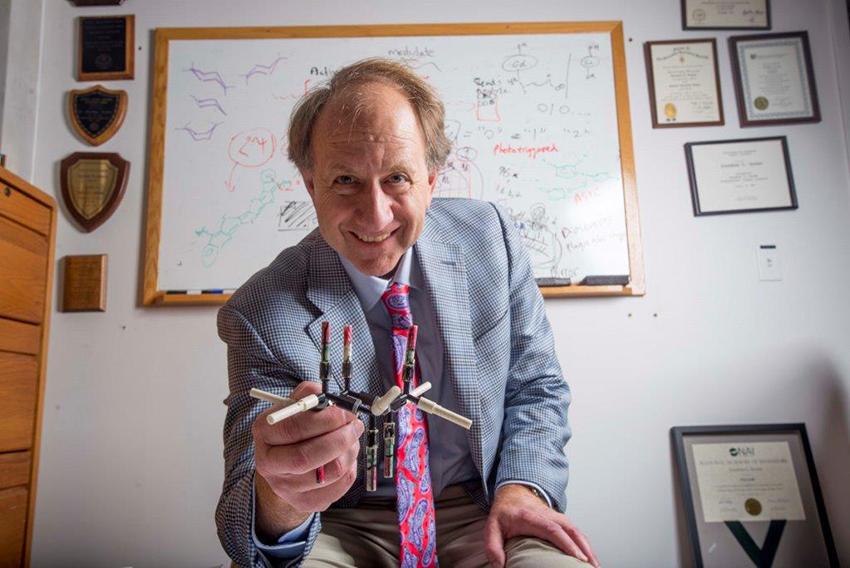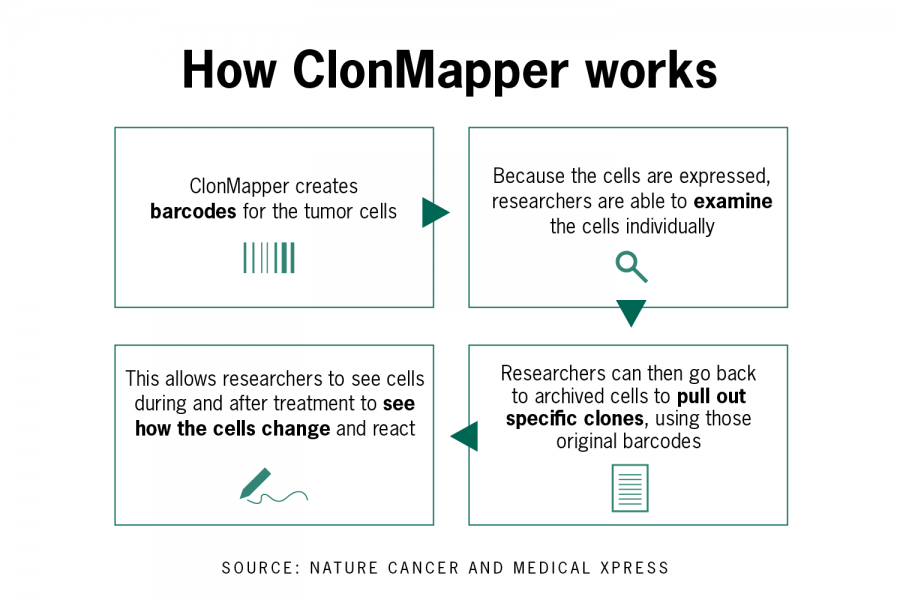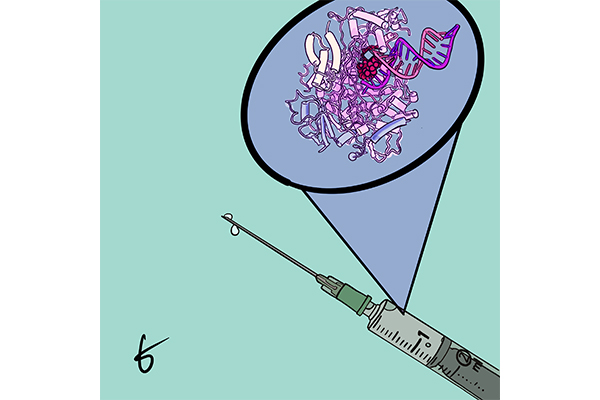As an undergraduate student at the University of California, Berkeley, cancer drug researcher Jonathan Sessler was diagnosed with Hodgkin’s lymphoma. Sessler ultimately beat the disease, and now his research focuses on cancer diagnosis and treatment.
Sessler, now an organic chemistry professor at UT-Austin, has over 75 issued patents with the United States Patent and Trademark Office and was the 2016 UT-Austin Inventor of the Year.
Alongside Richard Miller, his doctor while pursuing a Ph.D. at Stanford, Sessler co-founded Pharmacyclics in 1991. Pharmacyclics went public in 1995 and was successful due to Sessler’s contribution to the development of the molecule texaphyrin, named for its ability to be overlaid on the Texas flag’s star. Texaphyrins have the ability to target tumors more effectively than previous treatments, Sessler said. They are a derivative of porphyrins — molecules shaped like a hollow ring that are present in red blood cells.
“As much as I racked my brains, I just couldn’t figure out a way to make that new cancer drug,” Sessler said. “When I arrived in Texas, it became clear that here, everything is bigger, so I had this simple idea to make a bigger version of porphyrins.”
Pharmacyclics was acquired by drugmaker AbbVie, Inc. in 2015 for $21 billion. Sessler recently founded Cible, Inc., building upon research developed while working at Pharmacyclics. Sessler’s current work focuses on using texaphyrin to deliver platinum-based chemotherapy drugs directly to tumor cells. This, according to Sessler, is a much more effective and accurate method of administering platinum cancer treatment.
“We’ve been working on it for about a year and a half,” Sessler said. “Currently, we’re actively seeking funding. We’re pursuing results and chasing money.”
Erin Overstreet, program director of life science licensing at the Office of Technology Commercialization (OTC), recognizes the importance of Sessler’s work.
“We are fortunate to have scientists as renowned as Dr. Sessler at UT-Austin,” Overstreet said. “Our scientists are leaders in their fields and have helped pave the way for groundbreaking discoveries to move from the academic research labs to the marketplace with an end result of improving the lives of many on a local, national and global basis.”
Sessler said the main difficulty of his job is fundraising. As for the commercialization process, Sessler describes it as a challenging endeavor due to the difficulties of applying for patents, raising funds and conducting clinical trials. However, Sessler credits the OTC at UT-Austin for making the process easier.
According to its website, the OTC is responsible for the efficient transfer of University discoveries to the marketplace for the benefit of society. Betsy Merrick, OTC program director of marketing and public relations, said that commercialization can be a complex, multi-step operation as discoveries emerge from academic research and move through the path of lab to market.
“The OTC helps manage patent filings and licensing for these sort of inventions,” Sessler said. “They’re vital, and they know what they’re doing.”
Sessler said influencing millions of lives is what motivates him to spend hours and hours in a laboratory every day developing molecules.
“The technology developed working at Pharmacyclics has been used to treat 40 percent of all leukemia patients,” Sessler said. “And I’m just a very small part of that, so it’s a good feeling.”





















